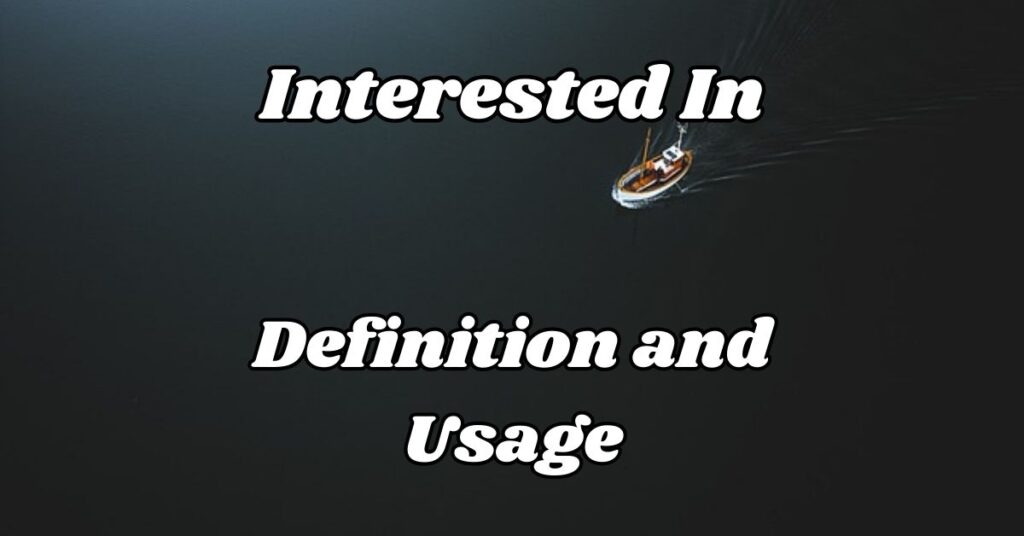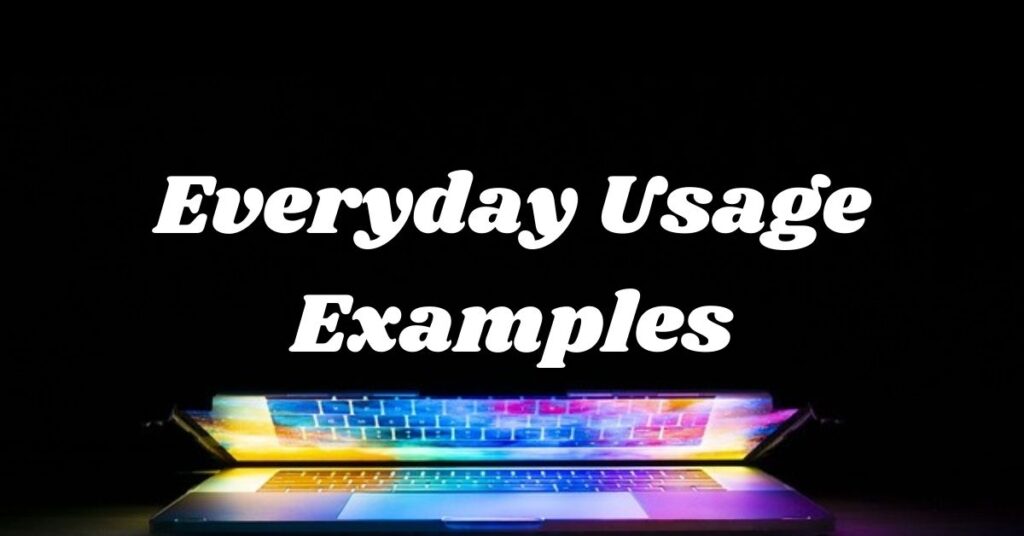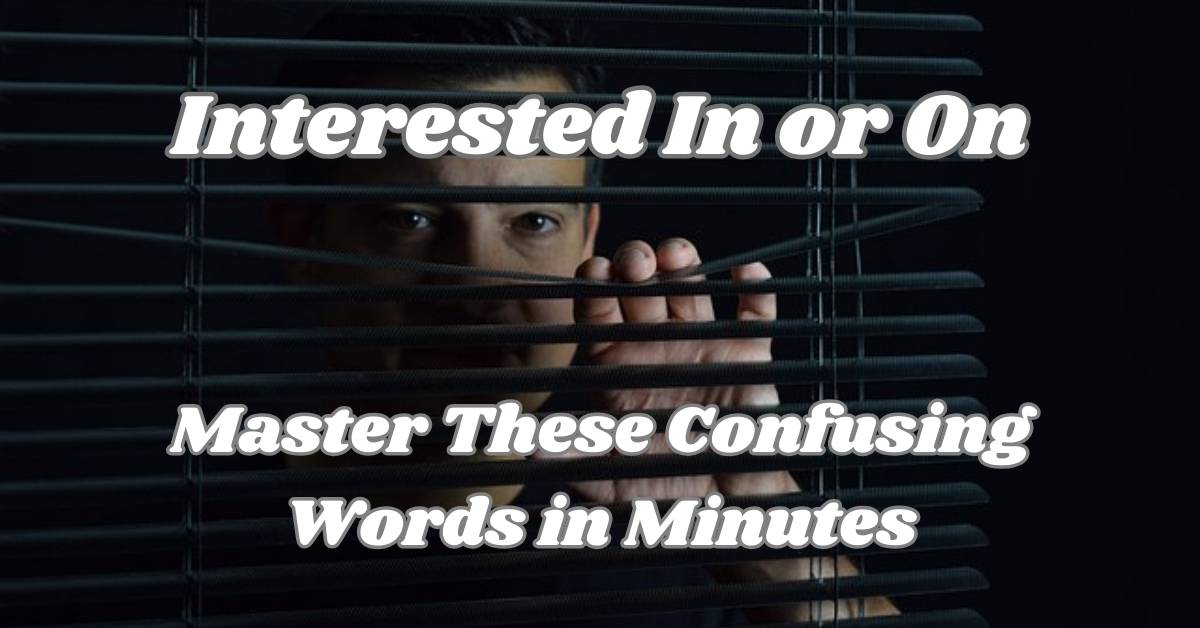Interested In or On can often confuse many people, leading to common mistakes in both writing and speaking. Understanding the correct usage of these phrases is essential for clear communication.
While “interested in” expresses curiosity or concern about a subject, “interested on” is rarely used correctly and can create misunderstandings. This article will clarify the meanings and contexts of these phrases, helping you master their usage quickly.
By exploring their definitions, origins, and practical examples, you’ll gain the confidence to express your interests accurately. Whether discussing hobbies, career aspirations, or personal growth, knowing how to use “interested in” effectively can enhance your communication skills significantly.
Quick Summary
Understanding the difference between “interested in” and “interested on” is essential for clear communication. While “interested in” is the correct phrase to express curiosity about a subject, “interested on” is rarely used and often incorrect. This article will help you master these terms, providing definitions, examples, and tips for effective usage in everyday conversations.
Difference Between Interested In or On

The main difference between “interested in” and “interested on” lies in their correct usage. Generally, “interested in” is the phrase you should use when expressing curiosity or concern about a subject.
For example, saying “I am interested in learning about climate change effects” clearly shows your engagement with the topic. In contrast, “interested on” is rarely used correctly and can lead to misunderstandings.
A statement like “I am interested on technology impact” sounds awkward and incorrect to native speakers. Knowing how to use these phrases properly can enhance clarity in your communication.
Origins of the Interested In
The word “interested” originates from the noun “interest,” which has a rich history tracing back to multiple languages, including Middle English, Old French, Medieval Latin, and Latin. The earliest known use of “interested” dates to the late 1500s, where it described a state of concern or sympathy.
Originally, “interest” meant having a stake or involvement in something, evolving over time to signify emotional engagement and curiosity about various topics. This evolution highlights the importance of understanding the phrase’s roots for effective communication in expressing genuine interests.
Interested In: Definition and Usage

“Interested in” signifies a state of curiosity or engagement with a particular subject or activity. It indicates a genuine desire to learn more or participate in something.
Whether discussing hobbies, career aspirations, or personal interests, using “interested in” effectively conveys your enthusiasm and connection to the topic, enhancing clarity in your communication.
Definition of ‘Interested In’
“Interested in” signifies a state of curiosity or concern regarding a particular subject or activity. It implies that you have an emotional or intellectual connection to that topic.
For instance, if someone says they are interested in exploring different cultures, it indicates a genuine desire to learn more about those cultures.
Usage of Interested In
You can use “interested in” when discussing hobbies, studies, or any subject matter that captures your attention. For example, saying “I am interested in photography” communicates a clear passion for that art form.
This phrase is versatile and can apply to various contexts, from personal interests like culinary experiences to professional aspirations such as career interests.
Usage of “Interested In” in Context
When using “interested in,” consider these examples:
- She is interested in learning new languages.
- They are interested in environmental conservation.
- He is interested in joining the book club.
- We are interested in traveling to Japan next year.
- I am interested in exploring different cultures.
These examples illustrate how this phrase can effectively express curiosity and engagement across diverse topics.
Synonyms of Interested In
If you want to vary your vocabulary while maintaining clarity, consider these synonyms for “interested in”:
- Curious about
- Engaged with
- Enthusiastic about
- Passionate about
- Keen on
- Intrigued by
- Fascinated by
- Captivated by
- Inquisitive
- Eager to learn
Using these alternatives can help keep your language fresh while still conveying genuine interest.
Interested On: Definition and Usage

“Interested on” is generally considered incorrect in standard English. Unlike “interested in,” which conveys curiosity or engagement, “interested on” fails to express the intended meaning and can lead to confusion.
It is important to avoid this phrase and use “interested in” instead to ensure clear and effective communication about your interests.
Definition of ‘Interested On’
“Interested on” lacks a formal definition in standard English. Its infrequent and incorrect usage often leads to confusion, making it essential to use “interested in” instead for clear and effective communication about one’s interests.
Usage of Interested On
While some may attempt to use “interested on,” it generally fails to convey the intended meaning and should be avoided in favor of “interested in.” For instance, saying “I am interested on science projects” does not align with standard English grammar rules and may confuse your audience.
Usage of “Interested On” in Context
Here are some incorrect examples using “interested on”:
- Incorrect: She is interested on science projects.
- Incorrect: They are interested on attending the concert.
- Incorrect: He is interested on learning guitar.
- Incorrect: We are interested on visiting museums.
- Incorrect: I am interested on improving my skills.
These examples highlight how using this phrase incorrectly can lead to confusion and misunderstandings.
Side by Side Comparison
To clarify the differences further, here’s a simple comparison table:
| Phrase | Correct Usage | Common Mistakes |
| Interested In | I am interested in art. | I am interested in art. |
| Interested On | N/A | I am interested on music. |
| Interested In | She is interested in learning languages. | She is interested on learning languages |
| Interested On | N/A | They are interested on science projects. |
This table emphasizes that only “interested in” is appropriate for expressing curiosity or concern about a topic.
Everyday Usage Examples

When discussing interests, using the correct phrase enhances clarity and fosters better connections with others. Saying “interested in” allows you to share your hobbies, career aspirations, or personal passions effectively.
This choice of words ensures your message is understood, making conversations more engaging and meaningful.
Interested In Example
For example, if you say “I’m interested in attending workshops this summer,” it clearly communicates your desire to learn something new during that time. Similarly, stating “She’s always been interested in fashion design” shows her passion for that field.
Examples of ‘Interested In’ in Sentences
- I am interested in exploring different cultures during my travels.
- She is interested in taking online courses to improve her skills.
- They are interested in discussing the latest advancements in technology.
- He has always been interested in environmental sustainability and conservation efforts.
- We are interested in joining a local community service group to help others.
Read More Article: Tomorrow or Tommorrow: What’s the Difference?
Interested On Example
Using “I’m interested on sports science” would sound awkward and incorrect to most listeners. It’s important to remember that this phrase does not fit into standard English usage.
Examples of ‘Interested On’ in Sentences
- Incorrect: I am interested on learning about history.
- Incorrect: She is not interested on participating in the event.
- Incorrect: They were never interested on the new project proposal.
- Incorrect: He became interested on improving his public speaking skills.
- Incorrect: We are not interested on that topic anymore.
These examples illustrate the correct usage of “interested in” and highlight common mistakes associated with “interested on.”
Interested On – Why It’s Not the Right Choice?

“Interested on” is not the right choice because it violates standard grammatical rules regarding preposition usage. This incorrect form can create confusion and misunderstandings about your interests.
Instead of clearly expressing curiosity or engagement, it muddles your message, making it essential to use “interested in” for effective communication.
5 Common Mistakes of Interested In or On:
Many people make common mistakes when using these phrases:
- Confusing “interested in” with “interested on.”
- Using “on” when discussing hobbies or passions.
- Misapplying prepositions based on regional dialects.
- Overlooking grammatical rules while writing formally.
- Ignoring feedback from peers about language usage.
Being aware of these pitfalls can help you avoid errors and communicate more effectively.
Read More Article: To Short or Too Short: What’s the Difference?
FAQs: Interested In or On
Which preposition is used with interested?
The correct preposition used with “interested” is “in.”
What is an example of interested in?
An example of “interested in” is: “I am interested in learning about different cultures.”
Interested on or in you?
The correct phrase is “interested in you,” as it expresses curiosity or concern.
I’m interested in meaning.
“I’m interested in” means you have a desire to learn more about or engage with a specific topic or activity.
Interested in or on examples?
Examples include: “She is interested in photography,” and “They are not interested on that subject.”
Conclusion
Mastering the distinction between “Interested In or On” is crucial for effective communication. By consistently using “interested in” to express curiosity and engagement, you can avoid common mistakes that lead to confusion.
Understanding the origins and proper contexts of these phrases enhances your ability to connect with others about your passions and interests.
As you continue to refine your language skills, remember that clarity in expression fosters better conversations, whether discussing hobbies, career goals, or personal growth. Embrace the correct usage and communicate with confidence.

